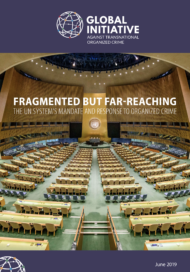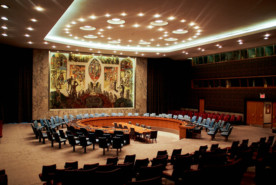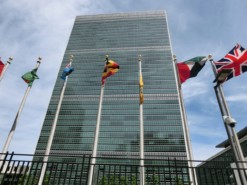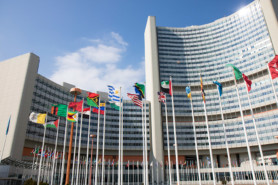Posted on 11 Jun 2019
UN Organisation Visualisation
From peace operations to how to better manage forests and food supply chains, the United Nations (UN) is engaged in the fight against organized crime and efforts to mitigate its impact within the ambit of the UN’s wider goals: peace and security, human rights and sustainable development.
To better understand the UN’s overall mandate for addressing organized crime, the Global Initiative conducted a desk review of the UN’s entities and agencies to identify their mandates and working agendas for organized crime, specifically in relation to the UN’s work on six crime types that have had major impacts on broader UN goals, including the UN Sustainable Development Goals (SDGs). The resulting tool and companion brief seek to provide a better understanding of the UN’s counter-crime work and serve as a basis for discussion about how organized-crime challenges, which are now far-reaching and serious, could be more effectively met and how UN System resources can be used more coherently.
The mandate for addressing organized crime extends across the UN System in a way that is expansive, exhaustive and certainly under-appreciated. This review identified a working agenda for 79 out of the UN’s 102 entities, bodies and agencies, or nearly 77 per cent. The research found that 37 per cent of these entities address human trafficking, and 33 per cent work on illicit drugs. Environmental crime was third, with 28 per cent of entities addressing related issues. Cybercrime and financial crime both saw 22 out of the 102 entities addressing the issue (21 per cent), and arms trafficking is worked on by 21 entities, yet this understanding of arms trafficking does not include illicit chemical and nuclear material trafficking.
Given the diverse nature of organized-crime threats, it is possible to argue that perhaps it is only right that the requirement to respond to organized crime is distributed across the UN System so widely. But without a coherent strategy underpinning this dispersion, responses to organized crime across the system can be fragmented, and opportunities to achieve synergies and learn lessons from responses are not maximized, or perhaps not realized at all.
This companion brief examines the implications this has for the UN System given such a widely dispersed mandate.



